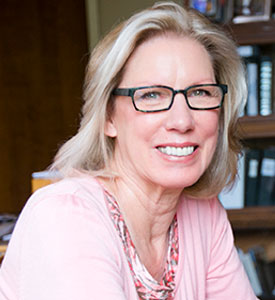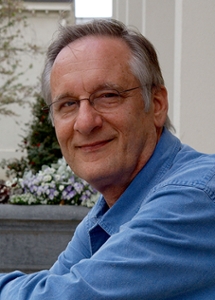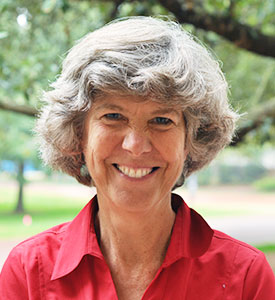Faculty retirements leave deep impact

Five Oxford faculty members retire this spring leaving an indelible mark on the campus.
In a college where teaching is the core of institutional identity, the retirement of long-time faculty members is always felt strongly. The conclusion of the 2016–17 academic year brings an especially deep impact, with five faculty members retiring from Oxford.
Says Ken Anderson, Oxford College dean of academic affairs, “Each of these has made a significant contribution to the life and culture of Oxford leaving behind terrific programs and offices that they have shaped and stamped with their own indelible mark.” The group includes:



About his retirement, Henderson says, “The kindness of the people and the beautiful old oak trees on the quad made my decision to come here an easy one. Throughout my time here I’ve been given the resources and freedom to be creative in my teaching and research…I’ve been able to open many students’ eyes to the world around them by exploring geology and meteorology with them. I’ve worked with wonderful, caring colleagues…My students have been the best part of my career. They are interested and interesting. They still teach me every day. They’ve allowed me to keep growing.” In the immediate future he will attend an international military geosciences conference in South Africa, where he will give a presentation on the Cumberland Plateau and its role during the Civil War.
In addition, he says, “There are fossils to prepare and lakes and rivers to kayak. There are lots of places that I need to see, but I’ll show up on campus to see how things are going and to see old friends. I’ll miss the teaching and the students. When I first interviewed at Oxford for this job, it felt like a special place and the right fit for me. I wasn’t mistaken.”

Lemons received grants from the National Endowment for the Humanities for summer study in New York and the United Kingdom as well as university grants for study at St. John’s College, where he received a master’s degree in the humanities, which he sought in addition to his PhD in English from Emory University. A Gregory-Rackley Faculty Development Program grant funded his study of medieval liturgy and theater in England. Lemons received the Fleming Faculty Award for Teaching and the Emory Williams Teaching Award.
In March, Lemons delivered “My Last Lecture” as a farewell word to students, faculty, staff, and friends. A slide-show retrospective of his career at Oxford capped the evening.

Her work as an environmental educator, mentor to students, and proponent of environmental issues in the community all led to her being named recently as recipient of the 2017 Environmental Education Alliance (EAA) of Georgia's Dr. Eugene Odum Lifetime Achievement Award. The honor was presented at the Southeastern EEA Conference in March.
In accepting the award, Wade said of Oxford and her teaching career, “To find a profession in life that feels more like a calling than just a job has been such a gift. I have had an opportunity to work with colleagues, who have inspired me to be a better educator-scientist than I would have been on my own, students who have taught me so much about the art of learning and staff who have done everything to support the educational program of the college. I feel so privileged to have had the opportunity to be a part of an institution dedicated to educating students in the liberal arts so that they can move out into the world to make a difference in the lives of others and in the health of the earth...I am so proud to be a part of Oxford College, [and it] will always be a part of my life.”
Anderson concludes, “Collectively, these five have established a legacy of dedication to student learning and tireless service that will serve as a model to faculty long into the future. While we wish each of them a happy and productive retirement, we will miss them deeply. “
In a college where teaching is the core of institutional identity, the retirement of long-time faculty members is always felt strongly. The conclusion of the 2016–17 academic year brings an especially deep impact, with five faculty members retiring from Oxford.
Says Ken Anderson, Oxford College dean of academic affairs, “Each of these has made a significant contribution to the life and culture of Oxford leaving behind terrific programs and offices that they have shaped and stamped with their own indelible mark.” The group includes:
 Evelyn Bailey, associate professor of mathematics, joined Oxford in 1982. Her primary academic areas are statistics and mathematics education. Serving as chair of the division of Natural Science and Mathematics, she helped implement theory practice/service learning into the math and science curricula. She is a recipient of Oxford’s Fleming Faculty Award for Excellence in Teaching and Service.
Evelyn Bailey, associate professor of mathematics, joined Oxford in 1982. Her primary academic areas are statistics and mathematics education. Serving as chair of the division of Natural Science and Mathematics, she helped implement theory practice/service learning into the math and science curricula. She is a recipient of Oxford’s Fleming Faculty Award for Excellence in Teaching and Service.
 Myra Frady, senior lecturer in mathematics, senior executive associate dean of resource planning, and chief financial officer. Frady joined the faculty of Oxford College in 1989. She actively contributed to and developed laboratory components for mathematics and computer science courses to enhance student learning. In addition to her teaching, she began the transition to administration in 1994 by assuming responsibility for the student computing facilities, taking the information technology department from a faculty-managed initiative to a full staff responsible for technology infrastructure, instructional design support, web based applications, and customer service. After assuming additional responsibility for finance in 1997, she was appointed associate dean of finance, operations, and information technology in 2000. In 2005 she accepted additional responsibilities and was named dean of resource planning and chief financial officer. Since that time, she has overseen the transformation of the Oxford College physical environment, with construction of a new library, science building, and three residential halls in addition to the renovation of three historic buildings and the changing of the quadrangle to a pedestrians-only zone.
Myra Frady, senior lecturer in mathematics, senior executive associate dean of resource planning, and chief financial officer. Frady joined the faculty of Oxford College in 1989. She actively contributed to and developed laboratory components for mathematics and computer science courses to enhance student learning. In addition to her teaching, she began the transition to administration in 1994 by assuming responsibility for the student computing facilities, taking the information technology department from a faculty-managed initiative to a full staff responsible for technology infrastructure, instructional design support, web based applications, and customer service. After assuming additional responsibility for finance in 1997, she was appointed associate dean of finance, operations, and information technology in 2000. In 2005 she accepted additional responsibilities and was named dean of resource planning and chief financial officer. Since that time, she has overseen the transformation of the Oxford College physical environment, with construction of a new library, science building, and three residential halls in addition to the renovation of three historic buildings and the changing of the quadrangle to a pedestrians-only zone.

Steve Henderson, professor of geology, who joined Oxford in 1985. Besides teaching standard course in geology, he also developed courses that included significant field components. For more than 30 years his course in desert geology took students to Big Bend National Park in southwest Texas, his course on dinosaurs took students to Colorado and Utah, and another on tropical environments included trips to the island of San Salvador. In recent years his research interests have focused on the influence of geology and geography on military campaigns. He has published numerous articles on this topic and presented at conferences in the U.S. and abroad. Henderson is a recipient of the Fleming Faculty Award for Excellence in Teaching.
About his retirement, Henderson says, “The kindness of the people and the beautiful old oak trees on the quad made my decision to come here an easy one. Throughout my time here I’ve been given the resources and freedom to be creative in my teaching and research…I’ve been able to open many students’ eyes to the world around them by exploring geology and meteorology with them. I’ve worked with wonderful, caring colleagues…My students have been the best part of my career. They are interested and interesting. They still teach me every day. They’ve allowed me to keep growing.” In the immediate future he will attend an international military geosciences conference in South Africa, where he will give a presentation on the Cumberland Plateau and its role during the Civil War.
In addition, he says, “There are fossils to prepare and lakes and rivers to kayak. There are lots of places that I need to see, but I’ll show up on campus to see how things are going and to see old friends. I’ll miss the teaching and the students. When I first interviewed at Oxford for this job, it felt like a special place and the right fit for me. I wasn’t mistaken.”
 Clark Lemons, professor of English and director of theater and performing arts. Lemons began at Oxford in 1982, teaching English with subject specialities that included theater history, poetry and religion in literature. In addition to his work in the classroom, he directed two main-stage plays per year, which have created an opportunity for acting and dramatic expression for hundreds of students over the years.
Clark Lemons, professor of English and director of theater and performing arts. Lemons began at Oxford in 1982, teaching English with subject specialities that included theater history, poetry and religion in literature. In addition to his work in the classroom, he directed two main-stage plays per year, which have created an opportunity for acting and dramatic expression for hundreds of students over the years.
Lemons received grants from the National Endowment for the Humanities for summer study in New York and the United Kingdom as well as university grants for study at St. John’s College, where he received a master’s degree in the humanities, which he sought in addition to his PhD in English from Emory University. A Gregory-Rackley Faculty Development Program grant funded his study of medieval liturgy and theater in England. Lemons received the Fleming Faculty Award for Teaching and the Emory Williams Teaching Award.
In March, Lemons delivered “My Last Lecture” as a farewell word to students, faculty, staff, and friends. A slide-show retrospective of his career at Oxford capped the evening.

Theodosia Wade, professor of pedagogy in biology. Wade joined the faculty of Oxford College in 1988, serving in a dual role as lecturer and coordinator for biology laboratories. She taught zoology, anatomy and physiology, environmental science, and general biology for non-majors. From its founding in 1992, she was instrumental in the teaching and work of the Oxford Institute for Environmental Education, an annual summer seminar that has greatly influenced and enhanced K-12 environmental education across the southeast region.
Her work as an environmental educator, mentor to students, and proponent of environmental issues in the community all led to her being named recently as recipient of the 2017 Environmental Education Alliance (EAA) of Georgia's Dr. Eugene Odum Lifetime Achievement Award. The honor was presented at the Southeastern EEA Conference in March.
In accepting the award, Wade said of Oxford and her teaching career, “To find a profession in life that feels more like a calling than just a job has been such a gift. I have had an opportunity to work with colleagues, who have inspired me to be a better educator-scientist than I would have been on my own, students who have taught me so much about the art of learning and staff who have done everything to support the educational program of the college. I feel so privileged to have had the opportunity to be a part of an institution dedicated to educating students in the liberal arts so that they can move out into the world to make a difference in the lives of others and in the health of the earth...I am so proud to be a part of Oxford College, [and it] will always be a part of my life.”
Anderson concludes, “Collectively, these five have established a legacy of dedication to student learning and tireless service that will serve as a model to faculty long into the future. While we wish each of them a happy and productive retirement, we will miss them deeply. “